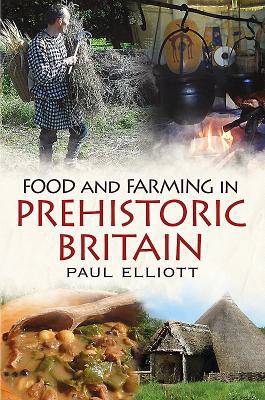
- Afhalen na 1 uur in een winkel met voorraad
- Gratis thuislevering in België vanaf € 30
- Ruim aanbod met 7 miljoen producten
- Afhalen na 1 uur in een winkel met voorraad
- Gratis thuislevering in België vanaf € 30
- Ruim aanbod met 7 miljoen producten
Zoeken
Omschrijving
From spit roasting pig to hanging cream cheese from the rafters, from baking roast pork under the ground in pits to cooking trout on wicker frames over an open fire, cooking techniques in prehistoric Britain are ingenious and revealing. There were no ovens and many vegetables and breeds of animal familiar to us today had not yet arrived. In reconstructing some of these techniques and recipes, the author has discovered a different world, with a completely different approach to food. This is native cuisine, cooked in a manner that persisted through the Neolithic, Bronze and Iron Ages. This book first tells the story of prehistoric settlement, and moves on to explore the hunting and foraging techniques of the Mesolithic. After discussing the way in which the Britons farmed, and what they grew, the book moves into the roundhouse and the tools and utensils available. The final half of the book examines the varied techniques used, from covering fish in clay, to baking meat underground, spit roasting, brewing mead, boiling water with hot stones and so on. All the techniques have been carried out by the author.
Specificaties
Betrokkenen
- Auteur(s):
- Uitgeverij:
Inhoud
- Aantal bladzijden:
- 176
- Taal:
- Engels
Eigenschappen
- Productcode (EAN):
- 9781781555088
- Verschijningsdatum:
- 1/01/2016
- Uitvoering:
- Hardcover
- Formaat:
- Genaaid
- Afmetingen:
- 152 mm x 236 mm
- Gewicht:
- 458 g

Alleen bij Standaard Boekhandel
+ 55 punten op je klantenkaart van Standaard Boekhandel
Beoordelingen
We publiceren alleen reviews die voldoen aan de voorwaarden voor reviews. Bekijk onze voorwaarden voor reviews.











